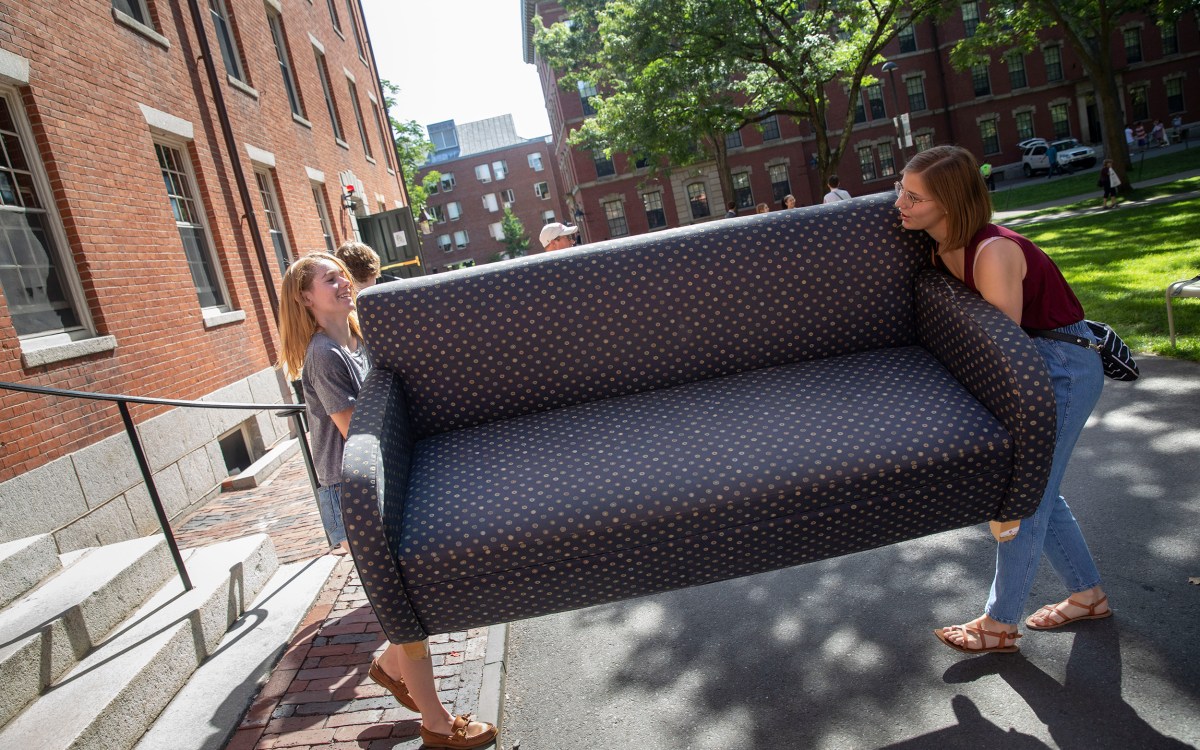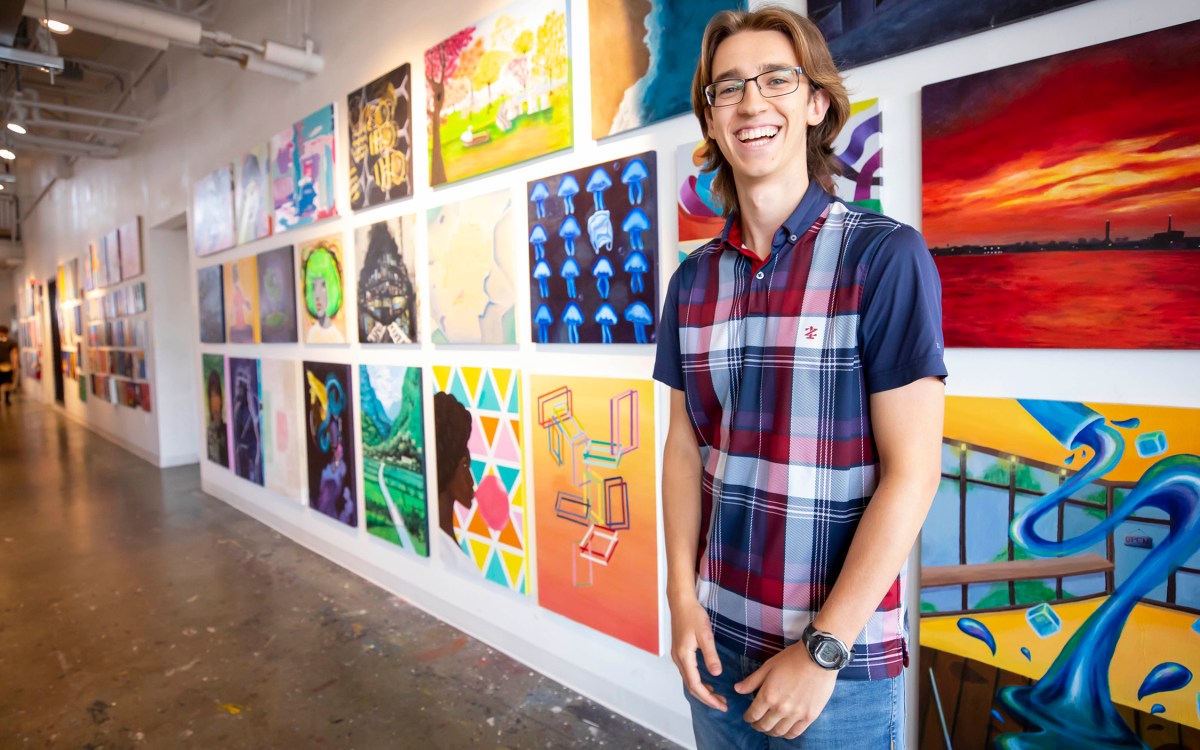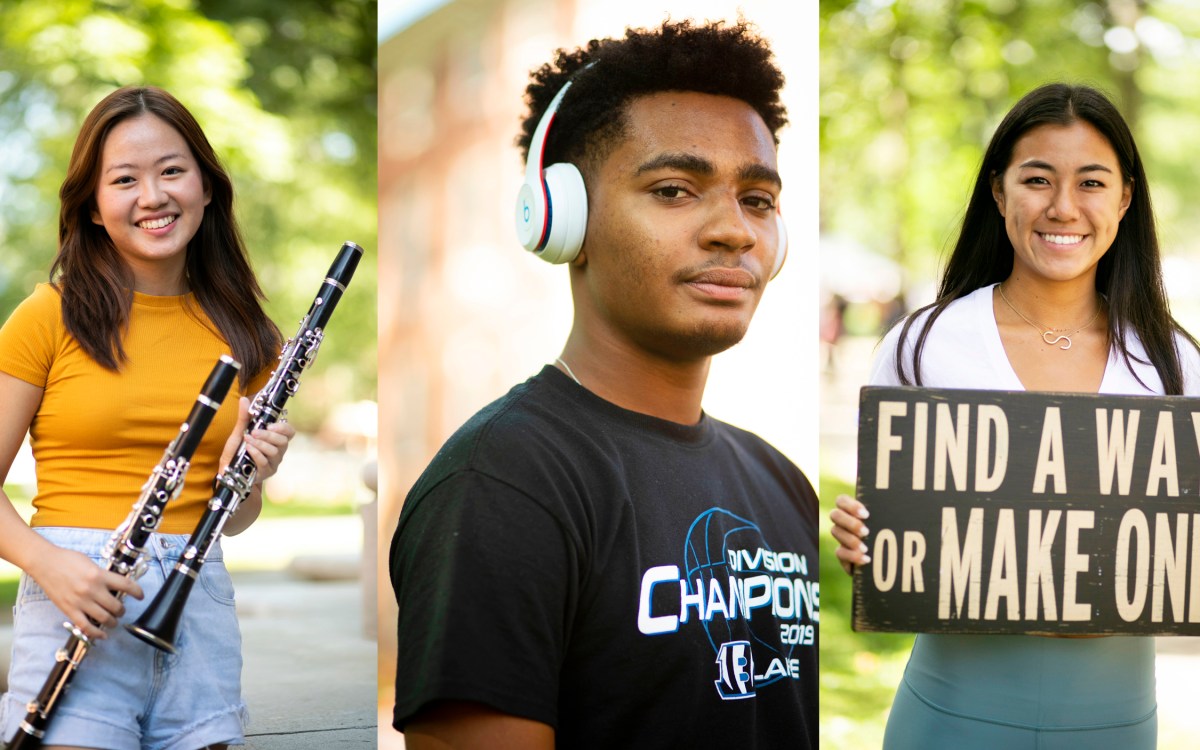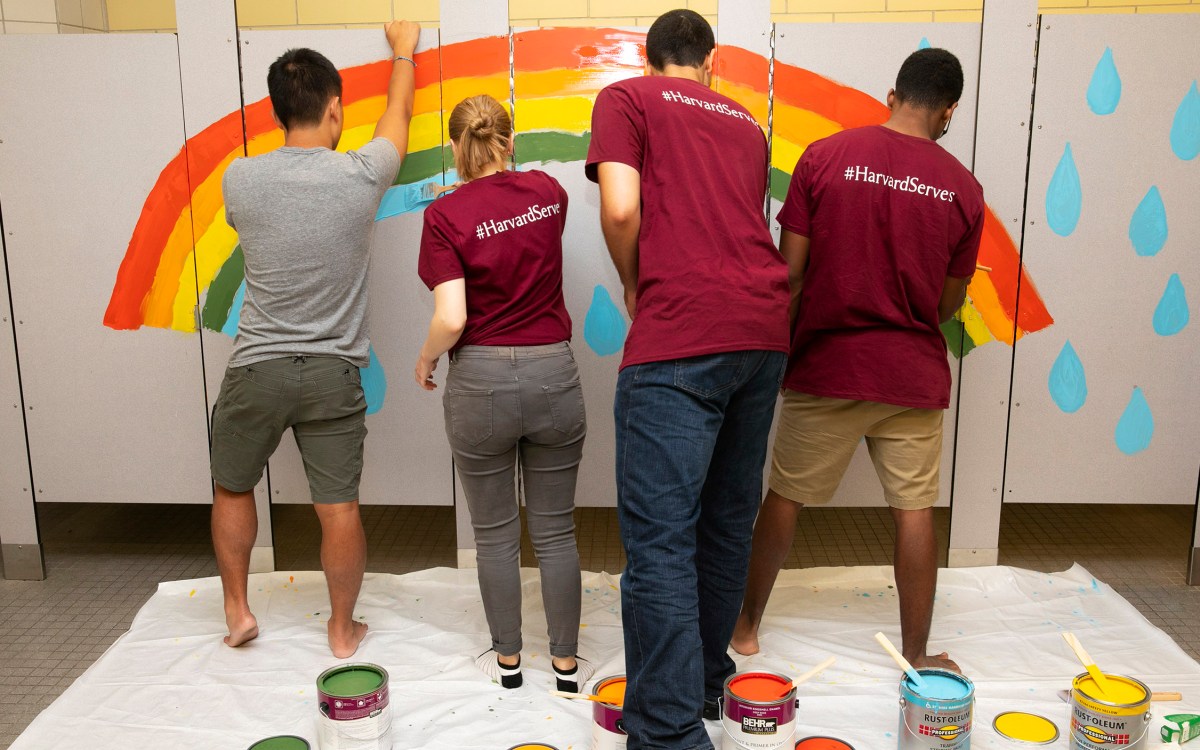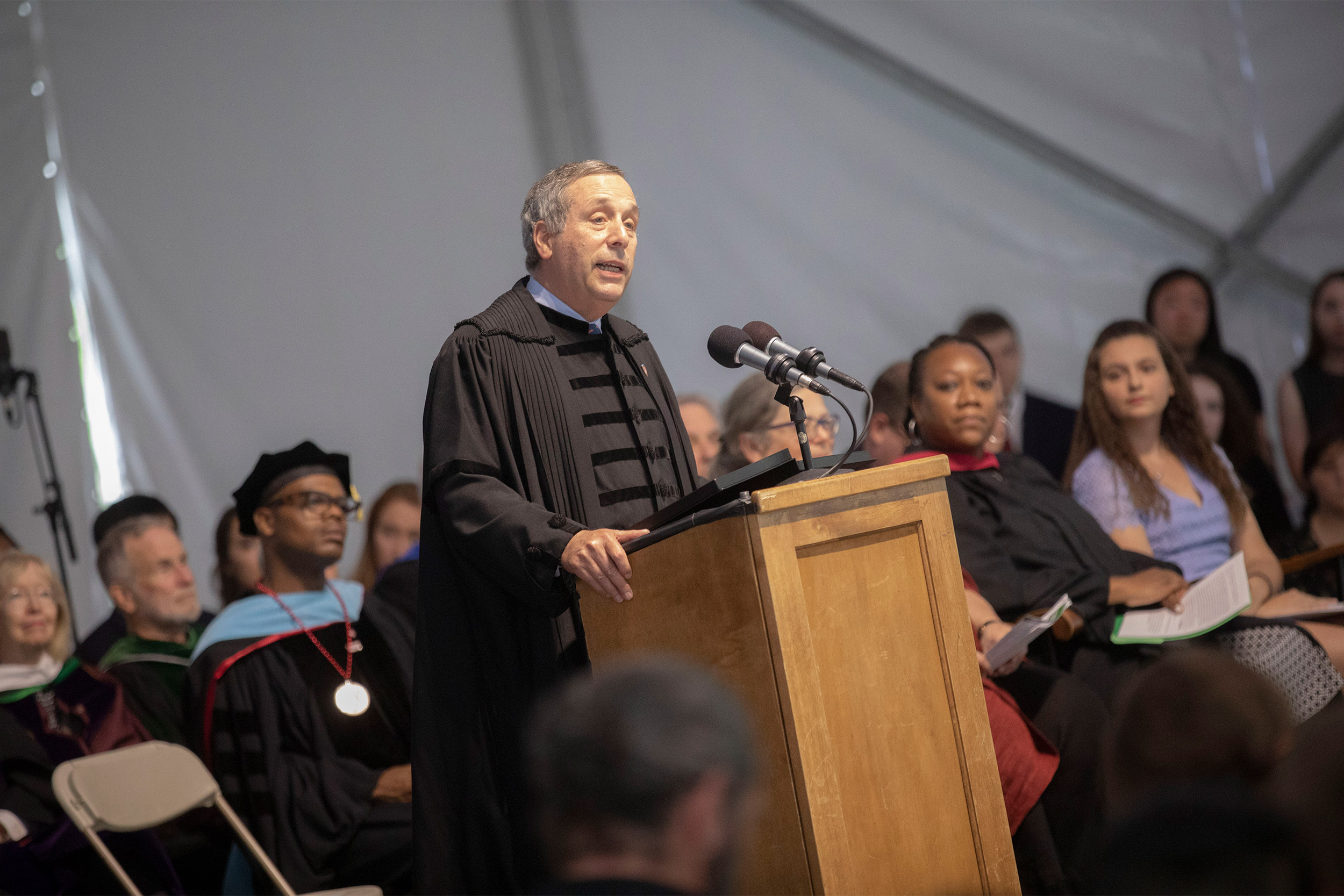
“Anyone who is thinking of the next four years as a series of stepping-stones to a predetermined outcome — be it an award, a concentration, a job, a specific career, or anything else — is a person who will miss the point of this place,” said President Larry Bacow in addressing the Class of 2023.
Photos by Kris Snibbe/Harvard Staff Photographer
The gathering of the first-years
Addressing their convocation, Bacow urges students to embrace connection, growth, and change
Connections and change were the theme Monday afternoon as Harvard College’s Class of 2023 proceeded to the Science Center Plaza tent for their First-Year Convocation and an address by President Larry Bacow. Change was even part of the ceremony.
Under darkening skies, the gathering planned for Tercentenary Theatre moved to the plaza, in the first of what will likely be many twists and turns in the first-years’ College careers. The switch was helped along by cheers and a lively processional from the Harvard University Band. The class is 1,650 strong; 13.1 percent of them are international students; and 14.5 percent of them are the first in their families to attend college. As they have for more than a decade, alumni volunteers served as marshals, greeting the students at their dorms and leading them into the exercises.
In welcoming the students, Bacow emphasized how connection and growth are intrinsically linked to change. “Anyone who is thinking of the next four years as a series of stepping-stones to a predetermined outcome — be it an award, a concentration, a job, a specific career, or anything else — is a person who will miss the point of this place,” he said.
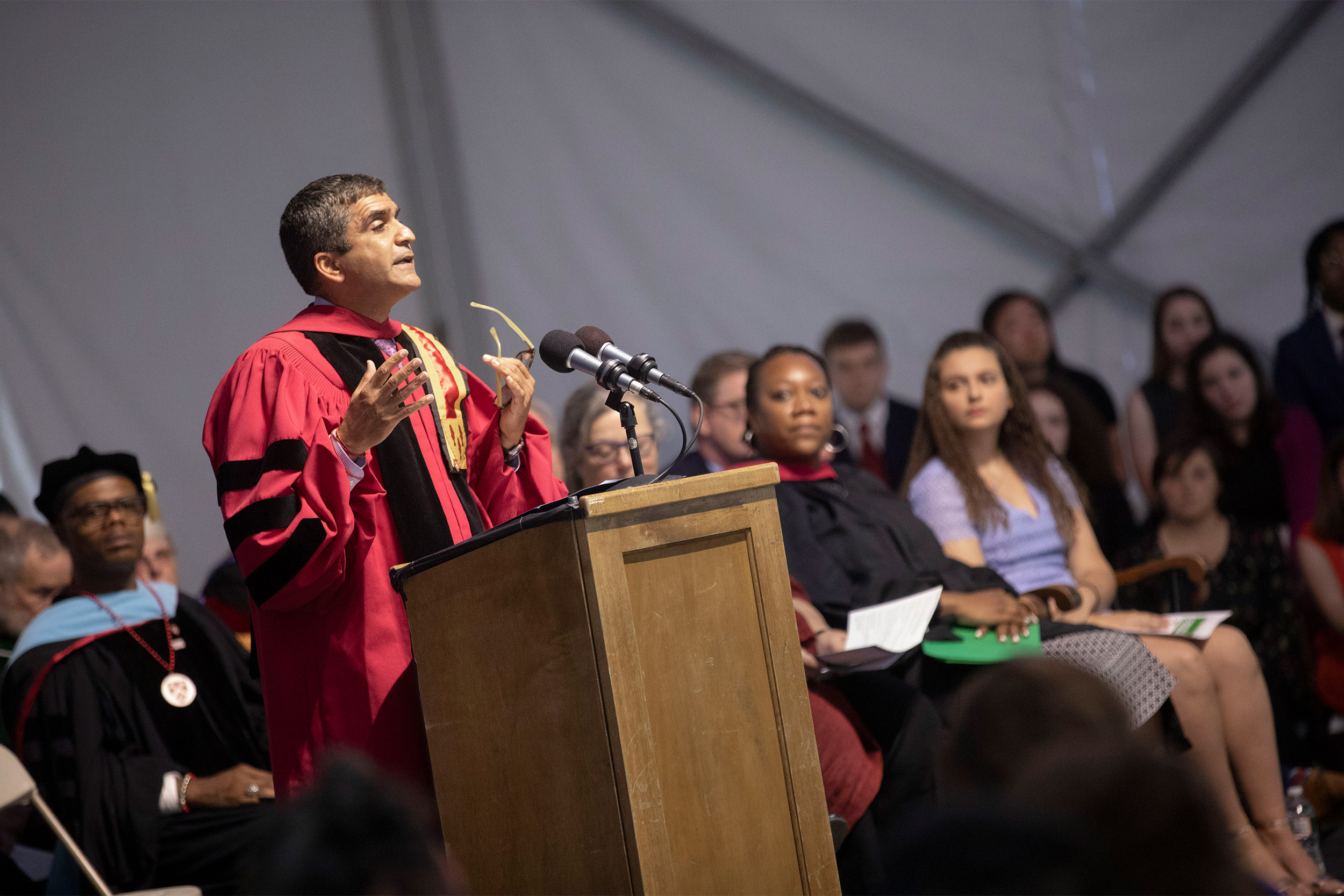
Before Bacow’s remarks, Stephanie Paulsell, the Susan Shallcross Swartz Professor of the Practice of Christian Studies at Harvard Divinity School and interim Pusey Minister at the Memorial Church, gave the opening invocation. In her inclusive prayer, she noted that “not every member of the class has arrived on campus.” Although she did not name Ismail Ajjawi, a Palestinian resident of Lebanon who had been denied entry into the U.S., her message highlighted the need for inclusion as she asked for “forms of community that illuminate connections between us.” (In a late development, Ajjawi was permitted entry and will be attending classes on Tuesday.)
Dean of Students Katherine O’Dair then welcomed Harvard’s 372nd class, noting that the College experience gives incoming scholars “a chance to redefine ourselves,” and cautioning them against spending all their time spent studying or honing a particular skill. In four years as dean, she said, she has found “the most rewarding parts of my day are the ones I didn’t plan,” reminding the first-years that, “The journey you are on is as important as the destination.”
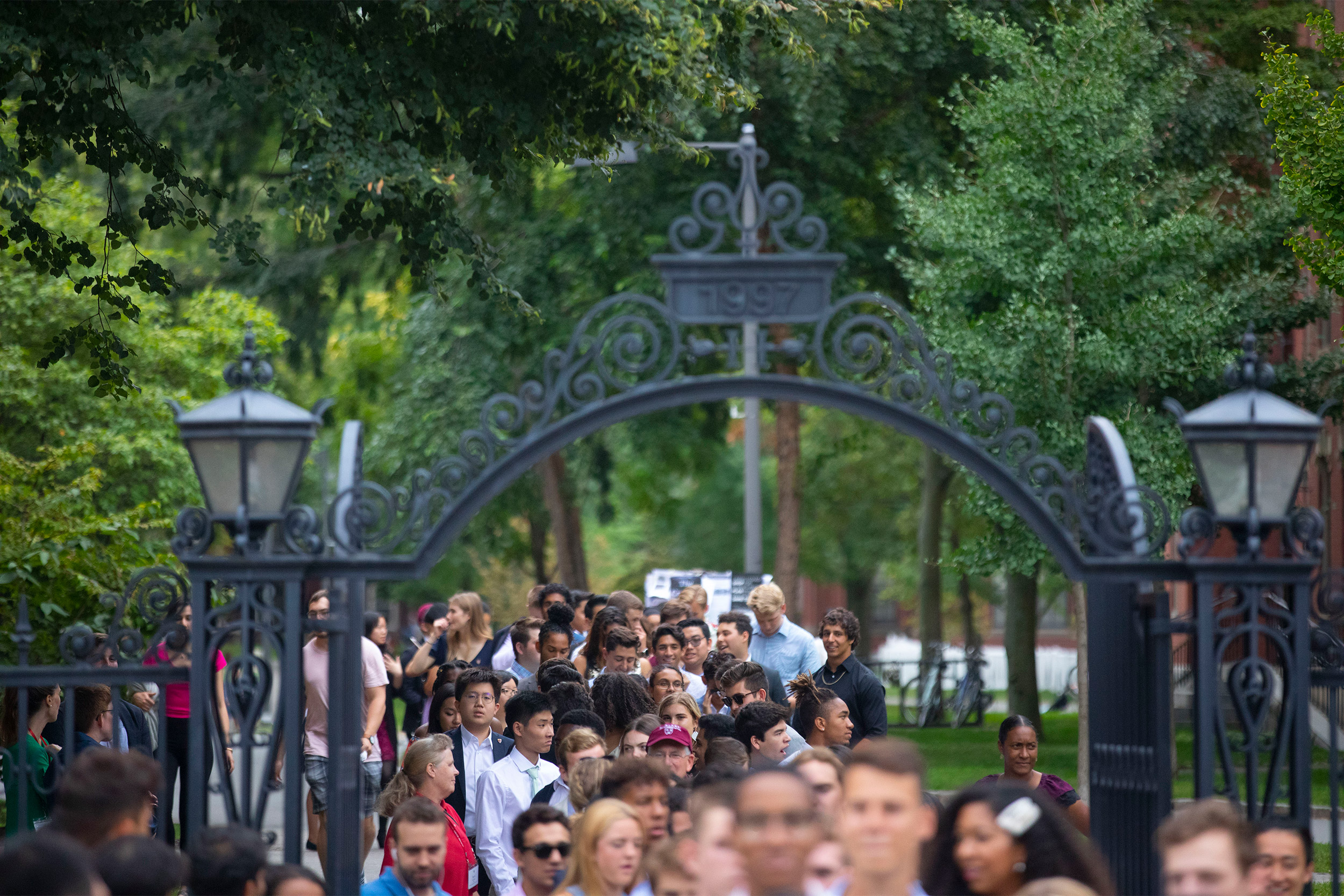
A choral interlude by the Harvard Choruses (the Harvard Glee Club, Radcliffe Choral Society, and the Harvard-Radcliffe Collegium Musicum) included a moving rendition of “Will the Circle Be Unbroken?” before Bacow addressed the crowd. Bacow, M.P.P. ’76, J.D. ’76, Ph.D. ’78, began his talk with a look back, noting that this fall marks the 50th anniversary of his arrival in Cambridge, where he attended “that other school at the other end of Massachusetts Avenue.”
“Trust me when I tell you that these first few days will persist in your memory for at least half a century,” he said, recalling that he and his family were greeted at MIT by police in riot gear and protesting students in the turbulent year 1969. He noted how much has changed — and how much remains the same.
“Time reveals what is essential,” said Bacow. “The landline will soon drift from human memory, as will ham radios, smudgy newsprint, and television antennas. But the desire for information and connection is as strong as it has ever been.”
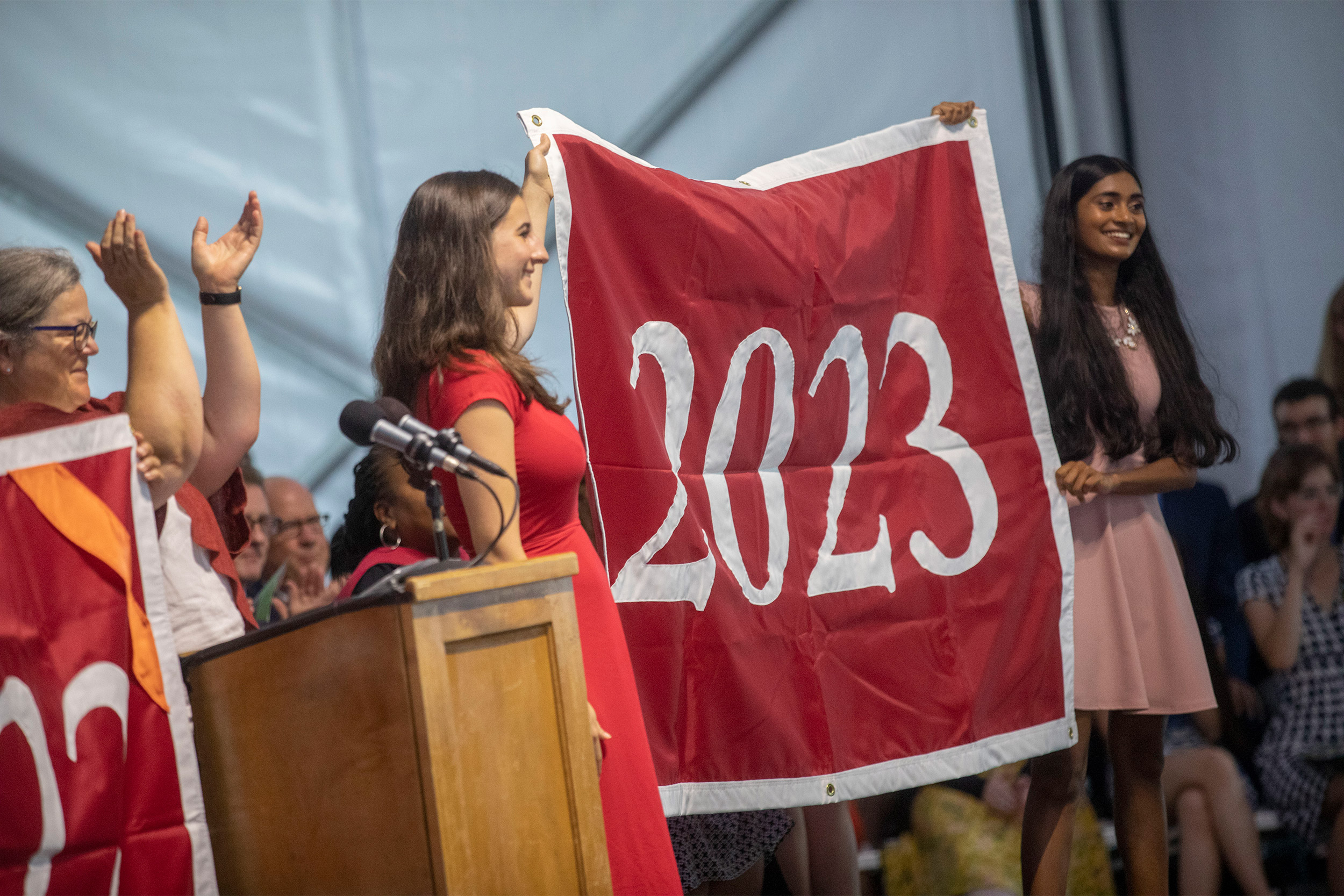
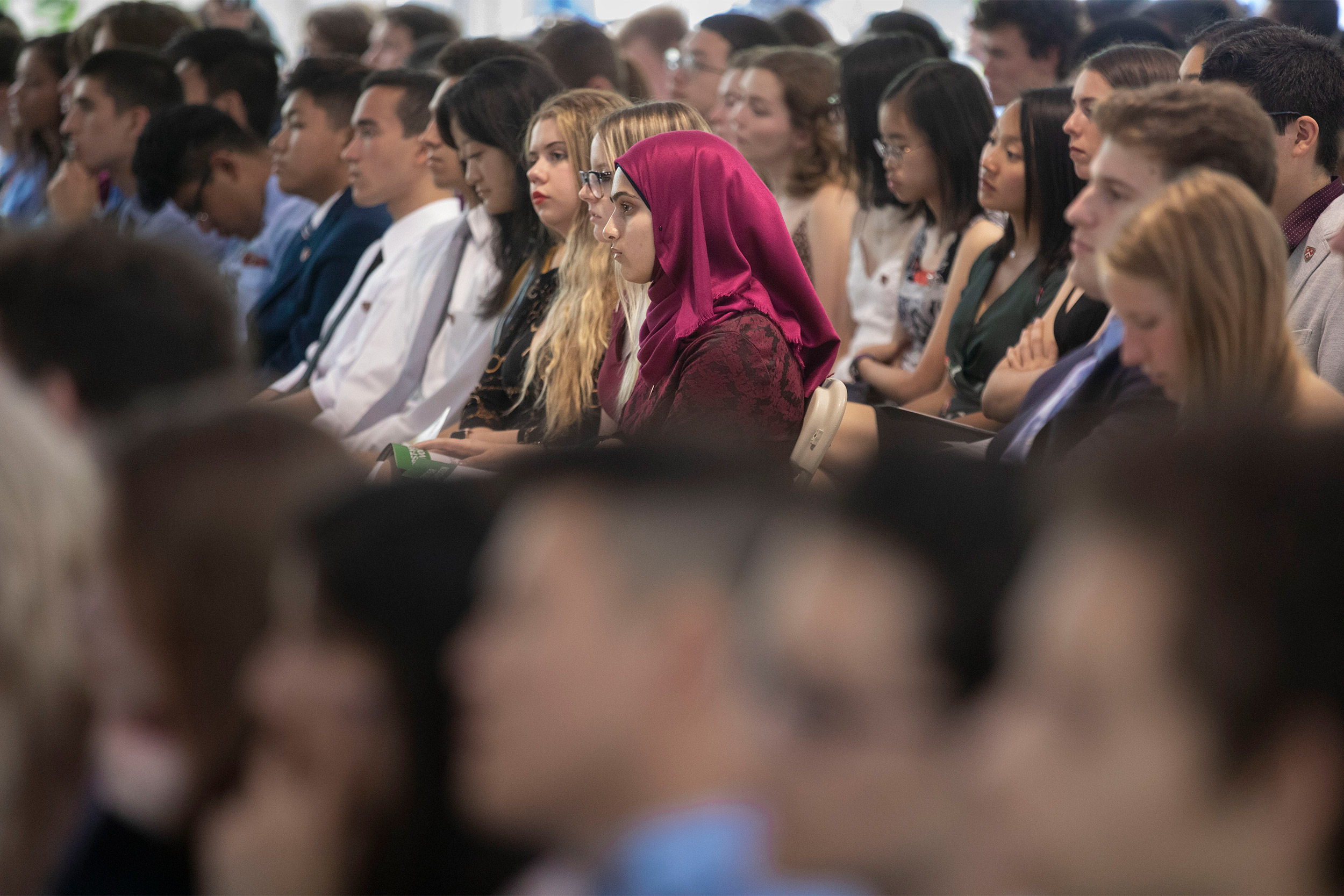
Harvard Alumni Association President Alice Hill (far left), ’81, A.M. ’88, Ph.D. ’91, applauds as the 2023 banner is presented to first-years attending their convocation.
Looking beyond one’s own experience is an important part of growth, he stressed. And embracing change, even when that is challenging, should be integral to the Harvard experience. “The more you learn — and the more you see — the more you will notice what needs changing,” he said. “Harvard is not perfect. Massachusetts is not perfect. America is not perfect — and neither is the world in which we live,” he said before urging the assembly to action. “It is necessary for all of us to stand up and speak out for the causes in which we believe.”
Rakesh Khurana, the Danoff Dean of Harvard College, Marvin Bower Professor of Leadership Development, professor of sociology, and faculty dean of Cabot House, gave the College address. “It’s time to start looking ahead,” he said. “Your generation is being asked to help recover and renew.
“Veritas is much more than a slogan,” he said, noting “the importance of the search for truth” and encouraging exploration and an open mind to create transformational College experiences that will better the world.
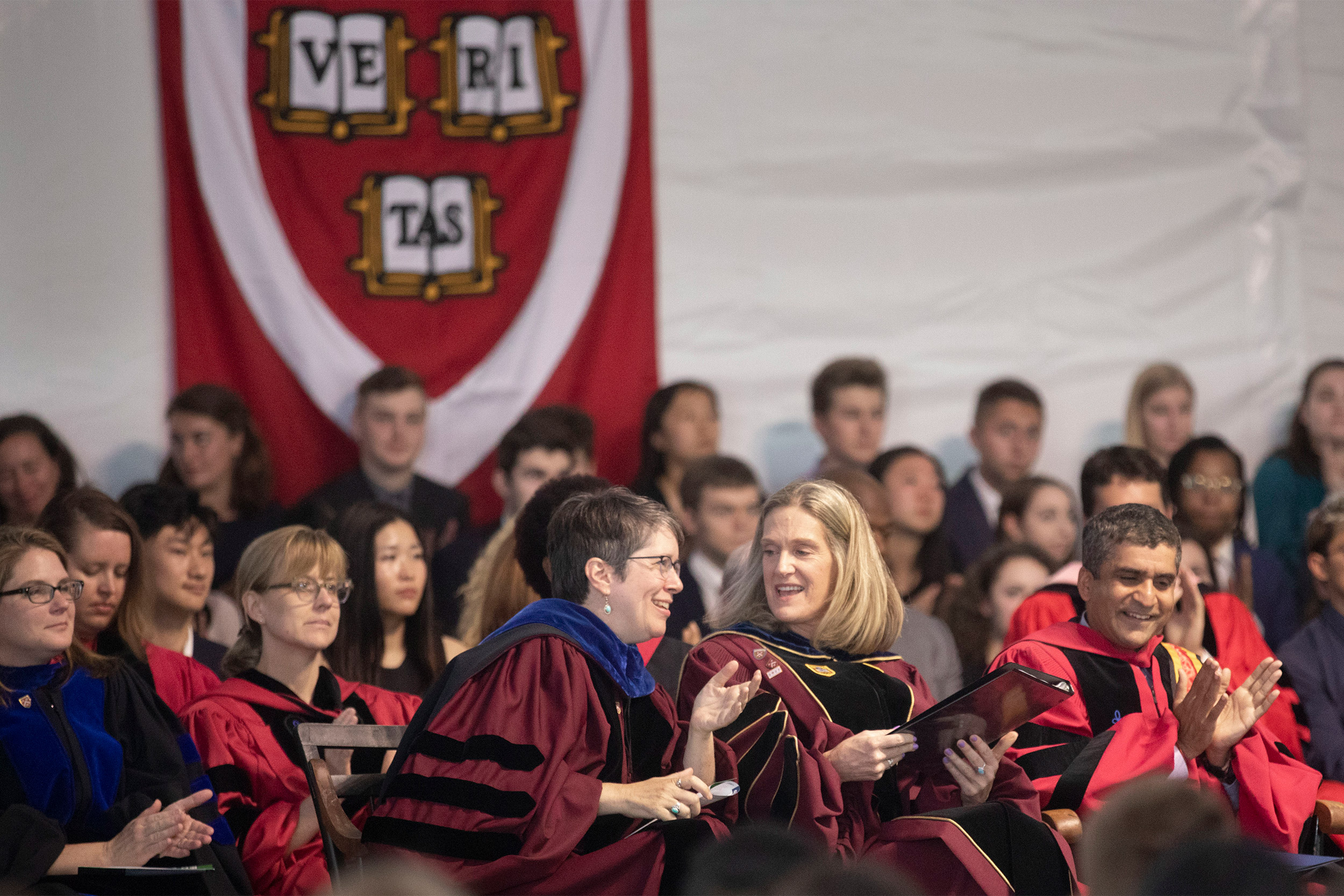
A musical selection by the Kuumba Singers, under the direction of Sheldon K.X. Reid, made for an inspirational interlude, starting with “Hold On Just A Little While Longer,” encouraging perseverance.
Fotini Anastopoulos ’20, a Winthrop House resident, gave the student salutation. The first-generation student recalled her father’s emphasis on education, despite health concerns and necessary sacrifices. She also spoke of the challenges of leaving the “only home I had ever known” to attend the College.
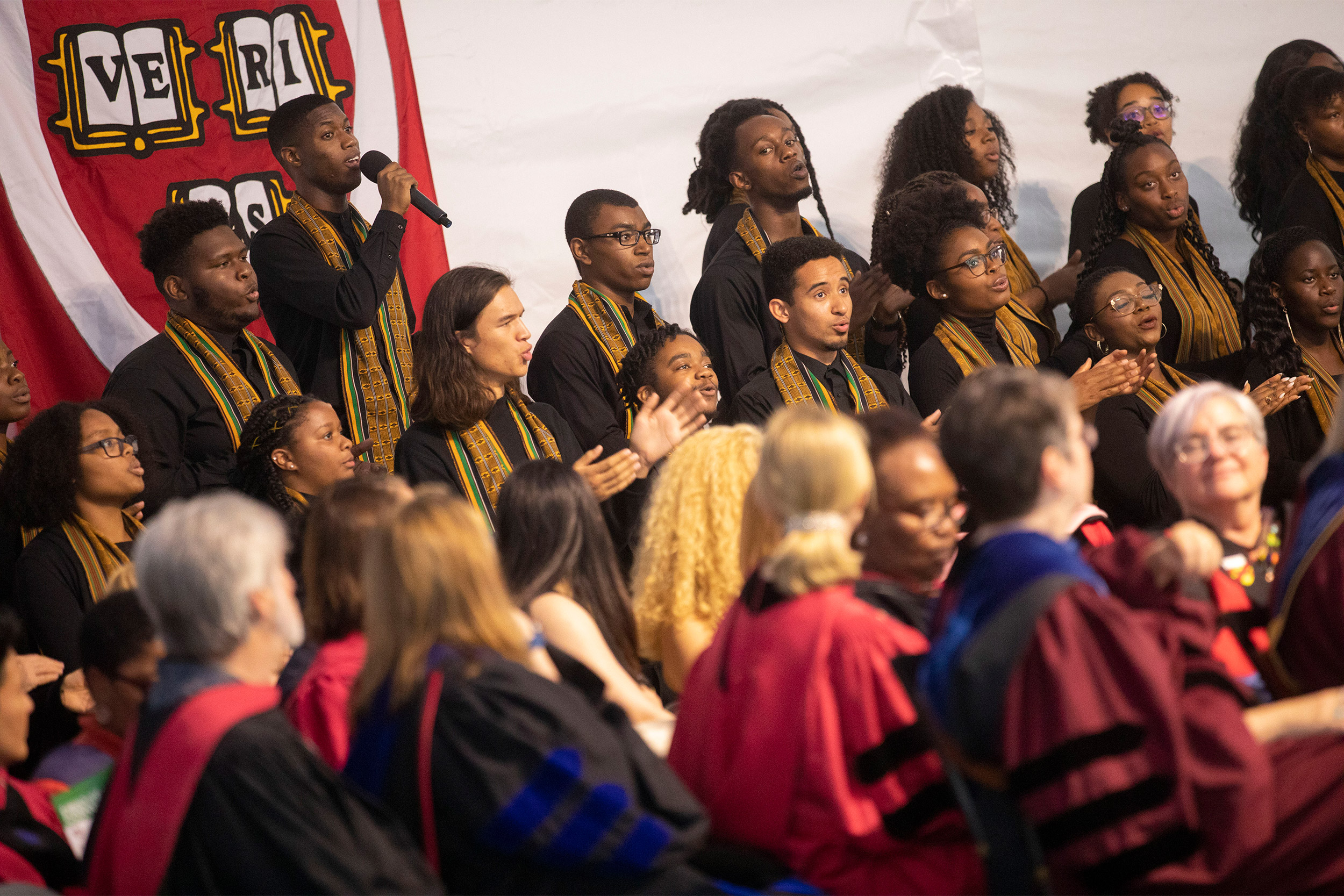
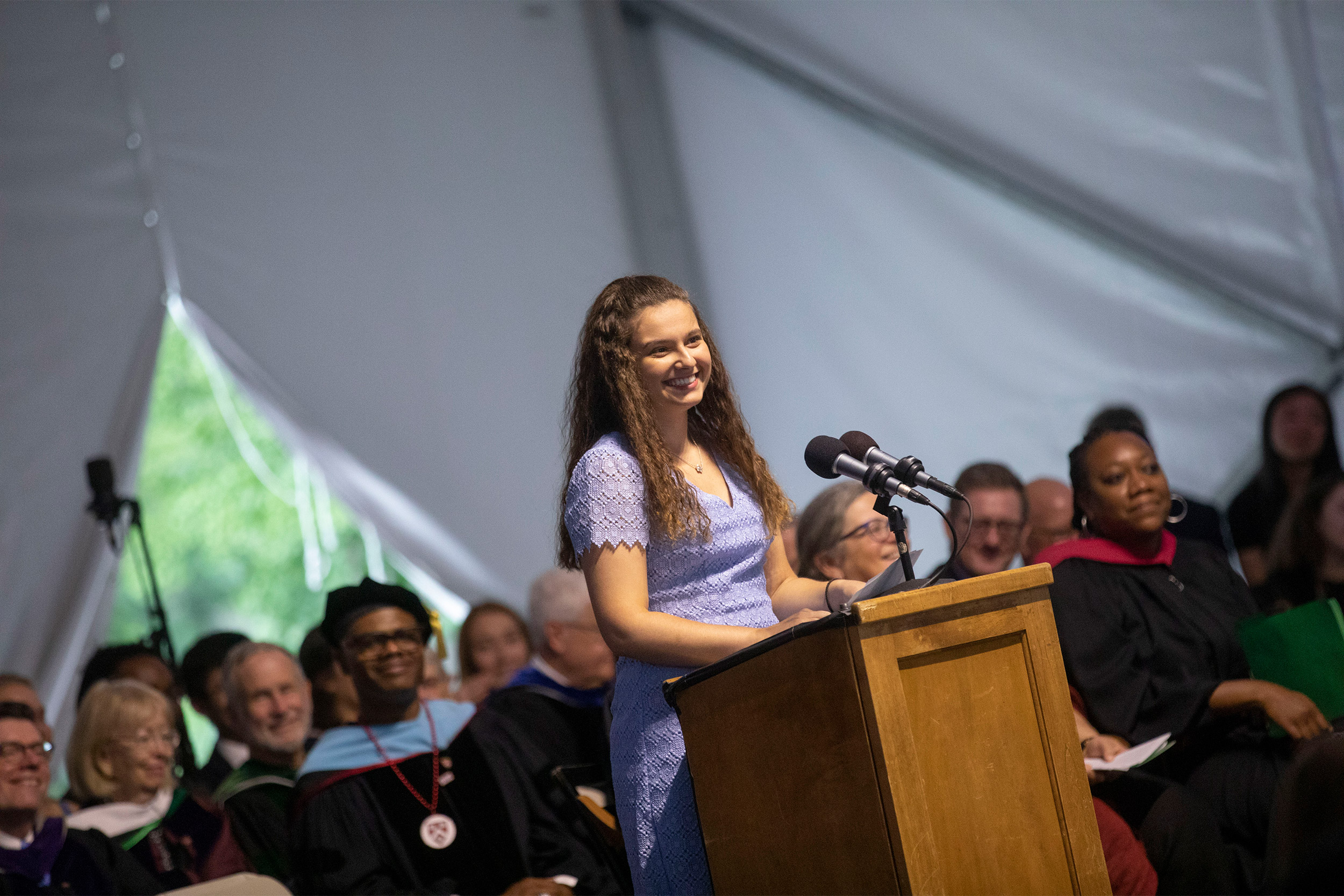
During the convocation, the Kuumba Singers perform and Fotini Anastopoulos ’20, a Winthrop House resident, gives the student salutation.
“Since coming here, I’ve found a new home,” said Anastopoulos, “one that can stand as a place that holds a piece of who I am.” Remembering her father, who died last summer, she told the assembly he taught her to “Never fear sacrifice. Never give up on the hope for a brighter future.”
In her greetings and presentation of the class banner, Alice Hill ’81, A.M. ’88, Ph.D. ’91, spoke of the First Nations, including those who were the traditional custodians of the land on which Harvard stands: the Massachusett, Nipmuk, and Wampanoag. On behalf of all the First Nation elders, as well as Harvard’s more than 371,000 living alumni, she then, for the first time, raised the banner of the Class of 2023 to thunderous applause, before the assembled first years, also for the first time, rose and sang the alma mater, “Fair Harvard.”



